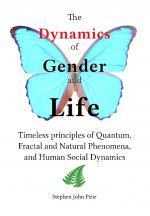The Importance of Hermeneutics
[ © Dr Johanna de Groot 2008]
Introduction
Most basically this term comes from the Greek god ‘Hermes’ who functioned as the messenger between gods and earthlings or beings under the earth. He was therefore the communicator or the link between the one sending the message and the receiver of the message. Hermeneutics describes, then, the process of perception, i.e. all the environment provides the stimuli or the messages and the human person receives and interprets and comes to an understanding.
Since we all come to any particular situation with preconceived ideas, the philosopher Martin Heidegger taught that in interpretation the process of the shedding of one fore-project for the next, provides us with a continual expansion of our understanding. It is fundamental that both the giver and the receiver of the message have an open mind towards the world. Openness is required before truth unfolds and at the same time, as truth unfolds, it produces openness. Here we have what is known as ‘hermeneutical circularity’. This process is also shown to be operative in communication by the biologists Maturana and Varela who demonstrated that languaging between human beings transforms them.
Importance
For the sake of sanity we need to return to the centrality of the human person in the search for truth and wisdom. Far too great a burden has been placed on science to provide human beings with the answers to the ‘big questions’. Hermeneutics is the way forward in that it gives due importance to the full breadth of human inquiry in a fully human manner.
 "The Dynamics of Gender and Life" ebook is now available at
"The Dynamics of Gender and Life" ebook is now available at